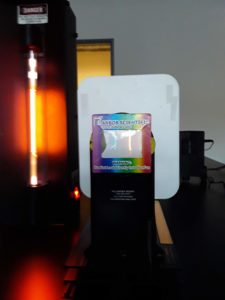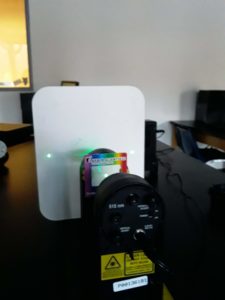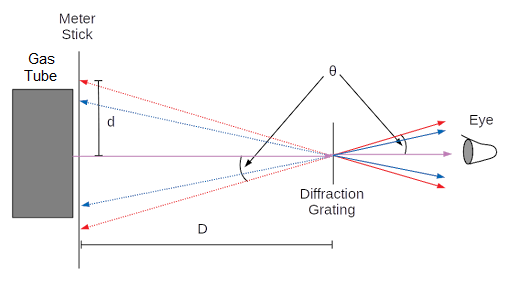Diffraction Grating
Tasks
- Determine the spacing of a diffraction grating spacing from its interference pattern
- Study line spectra of substances
Resources
- Optical bench
- Diode laser
- Diffraction gratings
- Optical screen
- Ruler
- Spectrum tubes and power source
Background
A diffraction grating, conceptually, is just a solid piece of material with many narrow, closely spaced slits in it. In practice this may be a piece of glass with grooves or ridges carved into it. Light passing through the different slits will interfere with itself, creating a characteristic pattern of light and dark bands, with the brightest band in the center and increasingly dim bands to either side. Because the size of the pattern depends on wavelength, a diffraction grating can be used to spread light into a spectrum in the same manner as a simple triangular prism.
The relationship between the grating spacing a, the wavelength of light \lambda, and the angle \theta to the m^{\mathrm{th}}-order maximum in the diffraction pattern is given by m\lambda=a\sin\theta=a\frac{d}{D}

